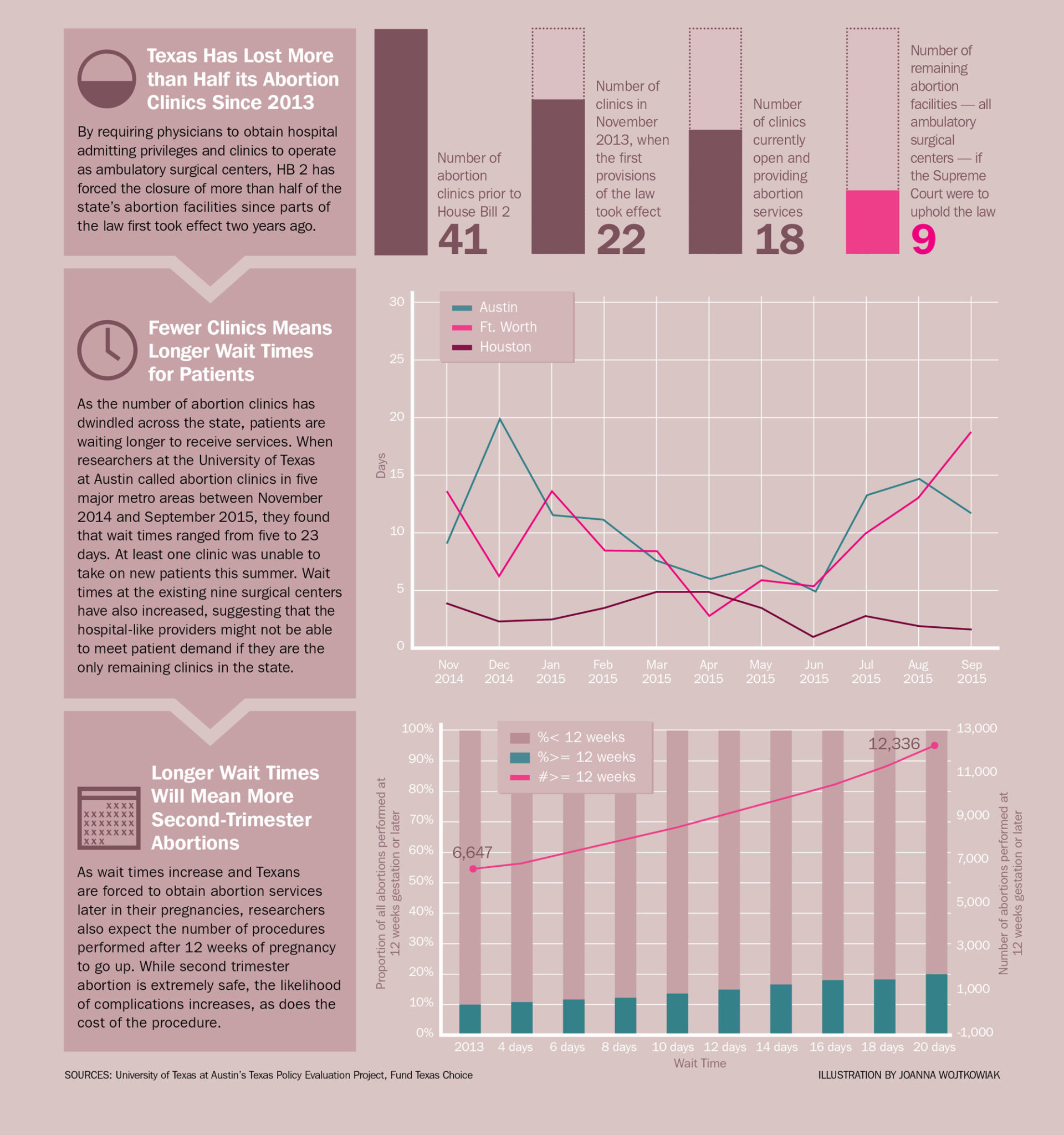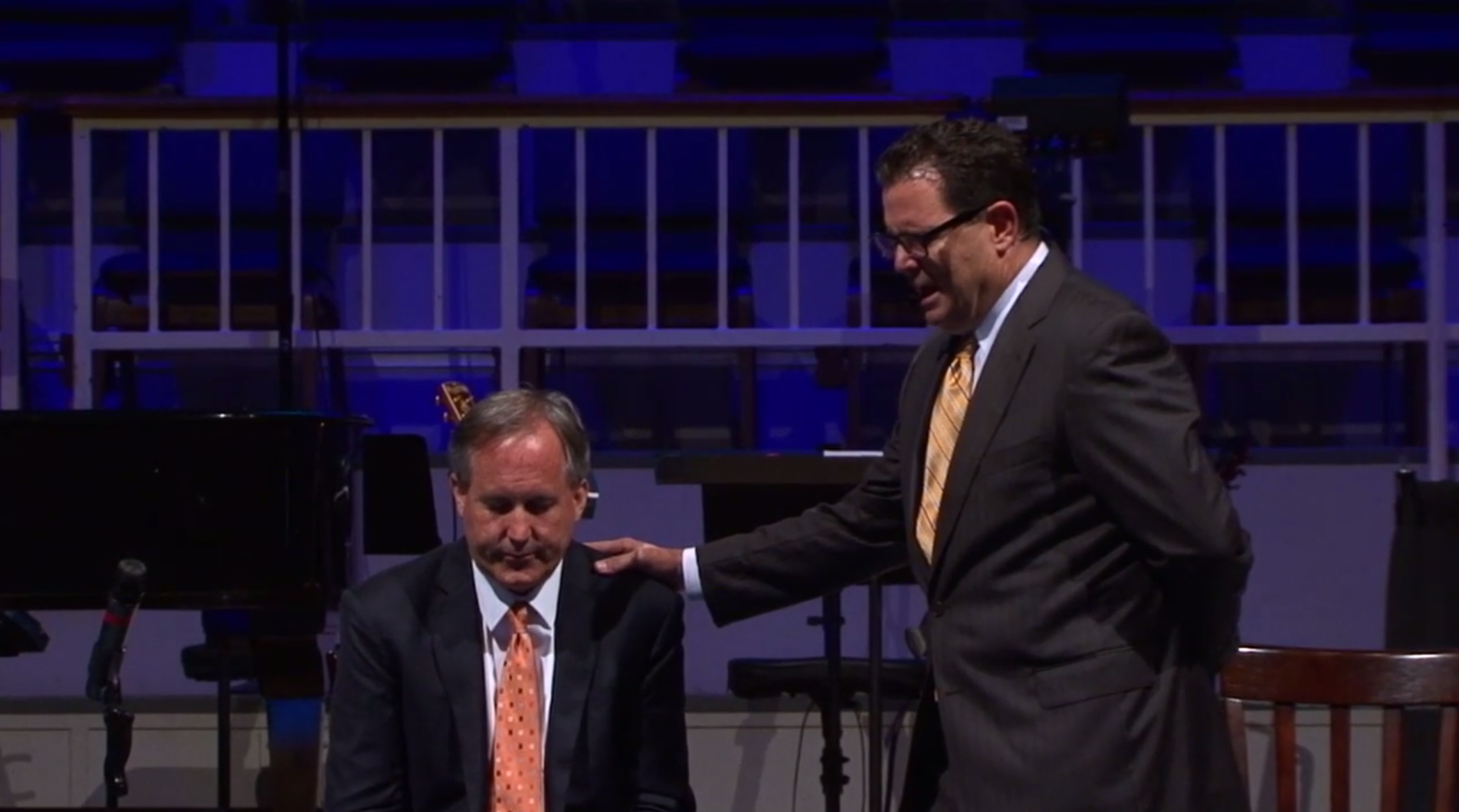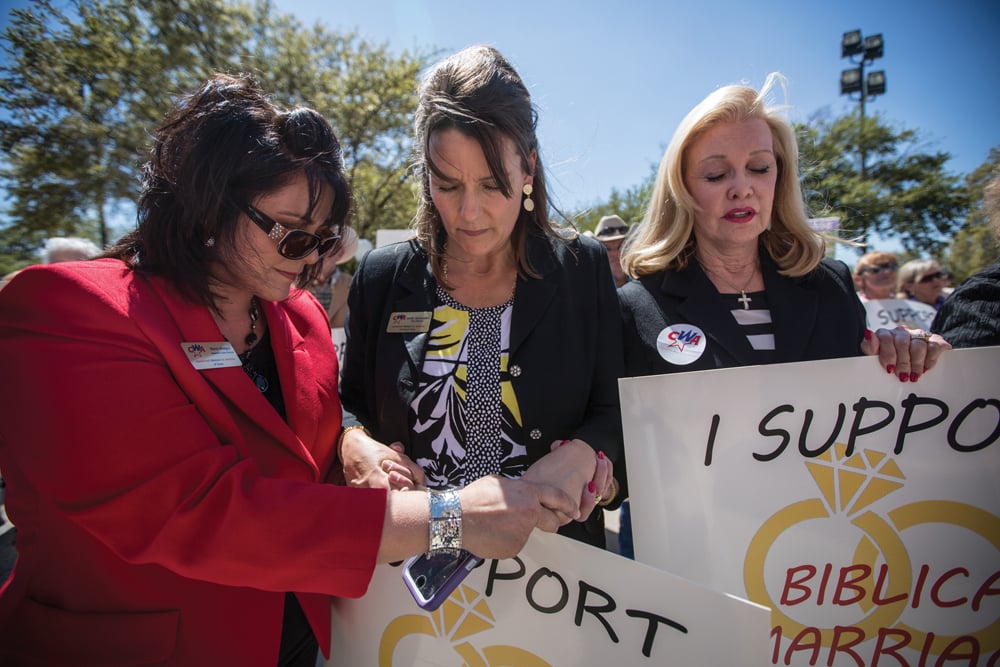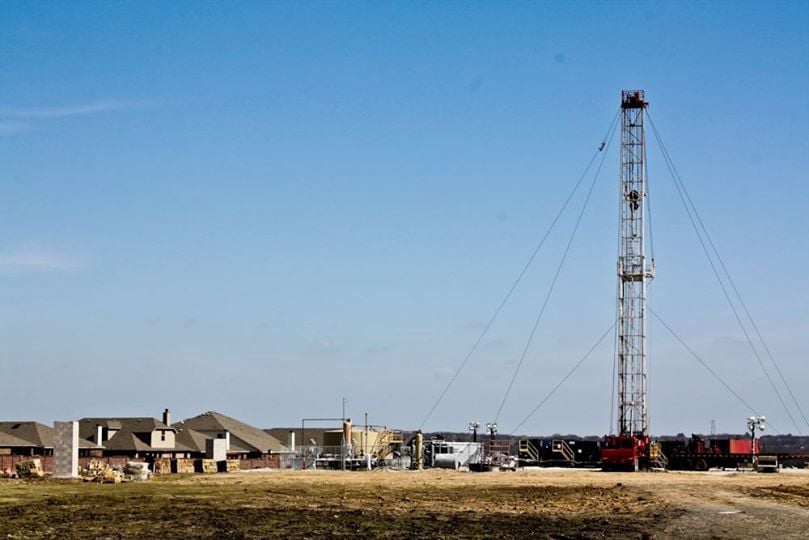
House Stampedes to Overturn Fracking Bans
Above: Fracking near homes in Denton.
The House moved to limit local control over oil and gas activities Friday, raising the ire of environmentalists and cities across the state.
House Bill 40 by Rep. Drew Darby (R-San Angelo) is widely seen as a response to a fracking ban passed by Denton voters last November. The bill preempts regulation of oil and gas operations by municipalities, allowing only “commercially reasonable” rules for aboveground activity. The bill will overturn Denton’s fracking ban, Dallas’ drilling ordinance and is expected to plunge other cities’ ordinances into legal jeopardy.
It passed on a 122-18 bipartisan vote. Thirty of the 52 Democrats in the House voted for HB 40. (Update: After the vote, three Democrats said they were recorded voting “yes” but had intended to vote “no”: Rep. Roberto Alonzo of Dallas, Dawnna Dukes of Austin and Jessica Farrar of Houston. Rep. Ramon Romero, Jr. of Fort Worth was absent but said he would’ve voted for the bill.) The only Republican to vote against the bill was Rep. Tam Parker (R-Flower Mound), whose suburban district has struggled with intense fracking activity.
Environmental groups reacted with disgust.
“This is a dangerous power grab by Big Oil to stomp out the rights of communities to protect themselves from the worst impacts of dirty drilling,” said Luke Metzger, director of Environment Texas. “They won’t settle for just overturning the Denton ban but are taking aim at ordinances across the state that limit drilling near homes, schools and parks as well as many other health and safety standards.”
Local control has long been a Texas tradition but is often a casualty of other imperatives.
At the Texas Capitol, little is more sacrosanct than money, and the oil and gas industry has lots of it. The industry donated more than $5 million to legislators during 2013 and 2014, according to a Texans for Public Justice report. The average House member pocketed more than $25,000.
Debate on Friday was mostly perfunctory. The details of the bill had been negotiated largely without input from rank-and-file lawmakers. Amendment after amendment was tanked on lopsided votes. The current bill was fragile, the work of the Texas Municipal League, the Texas Oil and Gas Association and other unnamed “stakeholders,” Darby said.
“The language of the bill has been painfully crafted,” Darby said.
Rep. Sylvester Turner (D-Houston) bristled at the notion that it was all a done deal. “I didn’t give up my seat to [Texas Municipal League],” he said.
But it was clear that Turner’s plea would make no difference. “I hope that this bill doesn’t come back to haunt us,” he said.
During the debate, Turner said he would vote against HB 40 if it wasn’t amended to include a guarantee that cities could write ordinances protecting city-owned land. However, he was among a number of Democrats who complained about the legislation but ended up voting for it.
“I was surprised,” said Rep. Rafael Anchia (D-Dallas), who voted against the bill, of how lopsided the vote was. Anchia’s district includes some of the few proposed gas wells in the city of Dallas.
Turner said the bill’s passage was all but assured.
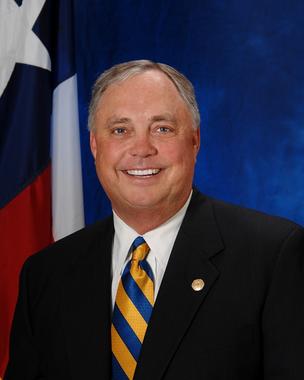
“We all came in knowing there was enough power behind the bill to get it passed,” he said. “This train has left the station. I gave it everything I could, I recognized what the end result was going to be, so I put myself in a position to be able to continue working with the authors as this bill moves forward.”
Anchia said the legislation will scrap Dallas’ carefully-crafted ordinance.
“I’m not comfortable with the Legislature supplanting its judgement for that of the local authorities,” he told the Observer. He said the industry will almost certainly challenge Dallas’ drilling ordinance and that even the city’s 1,500-foot setback requirement—the distance between oil-and-gas infrastructure and protected places like homes and businesses—could be in trouble. (The bill allows only “reasonable setback requirements.”)
Many communities, especially in the urban and suburban Barnett Shale, complain that the state has done little to deal with negative environmental effects from oil and gas activities, such as groundwater pollution and earthquakes most likely caused by fracking.
In defense of the bill, Darby said that oil is vital to the Texas economy.
“Texas needs to protect the oil and gas industry,” he said.
The bill now moves on to the Senate for consideration.
